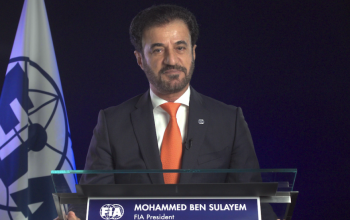Mild traumatic brain injuries and the myth of the ‘mild’ concussion
Josh Scott EDITOR-IN-CHIEF
Illustration: iStock.
Have you ever heard of a “mild” concussion? If so, you’ve probably heard someone misspeak, because the medical community makes no formal distinction between mild and severe concussions.
Despite this, in casual usage, the phrase “mild concussion” has become unnervingly common. When someone says, “Oh, it’s just a mild concussion,” not only are they being imprecise: they are also effectively downplaying the severity of what is, to put it plainly, a mild traumatic brain injury.
Perhaps the connection between the term “concussion” and the term “mild traumatic brain injury” explains some of the confusion. Concussions are typically defined as head injuries involving the temporary loss of brain function. The United States Centre for Disease Control (CDC) defines a concussion as the following: “a type of traumatic brain injury — or mTBI — caused by a bump, blow, or jolt to the head, or by a hit to the body that causes the head and brain to move rapidly back and forth. This sudden movement can cause the brain to bounce around or twist in the skull, stretching and damaging the brain cells and creating chemical changes in the brain.”
All concussions are, by nature, mild traumatic brain injuries, as concussions are a particular subset of mTBI. However, not all mTBIs are concussions, at least, not according to the American Medical Society for Sports Medicine. (In short, it would be inaccurate to refer to all concussions as mTBIs.)
Concussions are on the less-severe end of the brain injury spectrum. Of course, this is speaking comparatively, as all injuries that involve the brain are serious. However, from a medical standpoint, all mTBIs are only mild insofar as they are usually non life-threatening — which, mind you, isn’t to deny the power of a series of concussions to irreparably damage and destroy lives in a multitude of other ways that don’t happen to include death.
Recent research suggests that repeated sports-related concussions can lead to severe long-term brain damage. 4,500 former National Football League (NFL) players filed a lawsuit alleging that the NFL failed to protect them from the disastrous long-term health consequences of concussions, including amyotrophic lateral sclerosis (ALS), Alzheimer’s disease, and other forms of dementia, Parkinson’s disease, or severe cognitive impairment. (The players won.)
All of this is particularly relevant given the prevalence of existing misconceptions surrounding the meaning of the term “concussion.” It seems that the language we use to characterize concussions matters. Case in point: a 2010 study done by researchers at McMaster Children’s Hospital in Hamilton, Ontario studied 268 children admitted with head injuries who had had computed-tomography (CT) scan results. One of the more surprising things it found was that many parents and clinicians used the term “concussion” to imply the exclusion of a brain injury in the following sense: “He doesn’t have a head injury, he has a concussion.” For some of the reasons outlined above, this finding is alarming.
The same study also found that “concussion” diagnoses were strongly predictive of whether a child would be discharged from the hospital early and allowed to return to school significantly sooner than children who were not diagnosed with concussions.
Of course, with teenagers and adults, there’s also another force at work that is more difficult to account for: some athletes conceal the extent of their injuries out of a misguided but understandable desire to return to play as soon as possible. While they endanger themselves by doing so, in the case of professional athletes, it is important to note that they are grown adults capable of making their own educated decisions — though that isn’t to say they shouldn’t be more openly dissuaded.
In my lifetime, I’ve suffered three concussions. I was told at various points that all three were “mild.” While I’ve been lucky enough to have had parents and coaches that put my personal safety above the interests of the team, others haven’t been. I’ve known plenty of people to shrug off far more concussions and continue to play and compete.
If you ask me, calling certain concussions mild and therefore implying that they ought not to be taken as seriously as others is simply irresponsible. The dangers associated with concussions should not, in any context (save for medical, clarificatory reasons) be undersold. Any brain injury is a big deal. I much prefer the brazen specificity of “mild traumatic brain injury,” because despite its medical inaccuracy, it seems to get this point across much more effectively.




